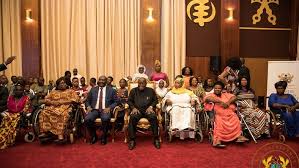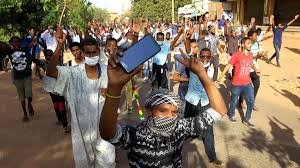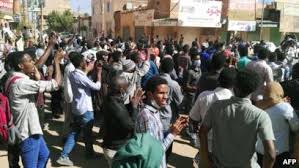Blog
-
Ghana President Empowers 1,000 Disabled Women Enterpreneurs
- On 02/05/2019
- In News
The President of Ghana, Nana Addo Dankwa Akufo-Addo, on Tuesday empowered 1,000 women entrepreneurs living with disability, under the Presidential Empowerment for Women Entrepreneurs with Disability.
President Akufo Addo, who presented GH¢2 million to the women , said ''Having set a fund target of some GH¢4 million, over the next two years, to support disabled women in business, the Ministry of Business Development has so far raised GH¢2 million of the amount. The one thousand (1,000) beneficiaries will not be required to pay any interest on the amounts they are going to receive."
"They will only pay back 50% of the principal advanced to them. This gesture is part of my government's support to our disabled women entrepreneurs, to help them scale up their businesses, and employ more people. We anticipate that, with the monies being given to them today, they will and should be able employ, at least, two persons", the President stated.
-
Kenya to Recruit 919 Teachers for Schools
- On 30/04/2019
- In News
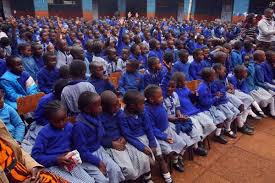 Then Kenya Teachers Service Commission is set to recruit about 919 Teachers for both Primary and Secondary schools.
Then Kenya Teachers Service Commission is set to recruit about 919 Teachers for both Primary and Secondary schools.Of the figure 659 Teachers will be for primary school while 260 will be for secondary schools.
At the present time the teacher shortage stands at 87,737; some 57,380 in secondary schools and 30,357 in primary schools.
The recruitemtn shall commence in May, according to the TSC chief executive Nancy Macharia,candidates for primary schools will not have to apply but will be selected from the last year's application list.
"Applicants for vacancies in primary schools must be holders of P1 certificate and will be selected from the county merit lists compiled during the May 2018 recruitment," Mrs Macharia stated.
Applicants in the secondary school category , are to submit their applications through county directors and Boards of Management by May 10.
Mrs. Macharia also said that the candidates are required to possess a minimum of Diploma in Education and are required to apply to Board of Management of the school where the vacancy has been advertised and submit a copy to the TSC county Director.
"Successful candidates will be deployed to serve in stations in any part of the country and not necessarily in the county where they were recruited," she concluded.
-
New Minimum Wage : Some states Might Prove Difficult-AWC
- On 26/04/2019
- In News
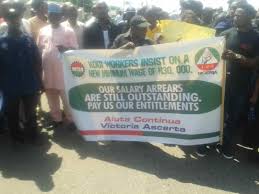 The All Workers Convergence(AWC) has called on workers in Nigeria to be ready to confront any state Government that would refuse to pay the new national minimum wage.
The All Workers Convergence(AWC) has called on workers in Nigeria to be ready to confront any state Government that would refuse to pay the new national minimum wage.The AWC made this call through its National Coordinator, Comrade Andrew Emelieze.
‘’As regards the implementation of the new national minimum wage, workers must not rest on their oars because some states might want to prove difficult. All necessary mechanisms must be put in place to ensure that any state government that refuses to pay must be confronted’’.
‘’Every state in Nigeria has the capacity to pay. And if there is any Governor that refuses to pay, the AWC is calling on such a Governor to resign. It is equally very important for labor to give conditions which include, government and employers of labor must not retrench workers, government must not increase the pump price pf petrol, under any guise and government must not also increase or introduce any form of taxation or devalue the national currency by any means’’, Comrade Emelieze stated
-
The People of Sudan Protest Bad Governance
- On 16/04/2019
- In Pictures
The people of Sudan want good governance and they are doing all it takes to ensure this is achieved.
Indeed, there are several other countries, whose citizens are also agitating for good governance, hopes are high that same shall be achieved sooner than expected.
-
Pump Price of Petrol- Govt. Wants to Strangulate Nigerian Workers-AWC
- On 16/04/2019
- In News
 The controversy surrounding the actual pump price of the Petrol Motor Spirit(PMS) has been described as a kite flown by government officials to deny Nigerian workers a new national minimum wage.
The controversy surrounding the actual pump price of the Petrol Motor Spirit(PMS) has been described as a kite flown by government officials to deny Nigerian workers a new national minimum wage.The All Workers Convergence(AWC) made this known through its National Coordinator, Comrade Andrew Emelieze.
''The AWC concludes that government has a sinister agenda strangulate the Nigerian workers and the generality of the Nigerian people. The question we ask is that even if government will have to take the increased salaries back from the workers what about the unemployed, the retirees and all those who don't receive salaries from any source ? It means that government would visit them with unprecedented agony and pain''
''However, while the AWC is calling on government to forget the idea of an increment in the pump price of petrol, VAT or the removal of petrol subsidy, is is also our view that if President Buhari knows he cannot pay the new national minimum wage, he should resign. Finally, labour is called to action and should be prepared for the mother of all protests, if the new national minimum wage is to be realized in the shortest possible period'', Comrade Emelieze warned.
-
Algerians Continue Protests to Demand Exit of Those Still in Power
- On 13/04/2019
- In News
Algerians have continued to embark on protests for the past eight Fridays to press home thier demands for radical changes and the exit of those in the system.
Just as it happened in the previous Fridays, the protesters poured into Algiers Streets, the main Post Office esplanade and Maurice Audin Place, their favorite place of rally since the first marches on February 22nd.
The most recent protests is coming on the heels of the appointment of Abdelkader Bensalah as head of state in accordance with Article 102 of the Constitution.
Bensalah summoned the electorate for 4 July 2019 to elect a new President of the Republic.
-
Hunger is the Dividend of Democracy in Nigeria-Prof Olagoke
- On 10/04/2019
- In News
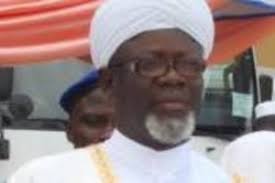 Nigerians have continued to complain over the unabating hunger and poverty in the land.
Nigerians have continued to complain over the unabating hunger and poverty in the land.Anti-people policies of the present administration have been identified as the major causes of the ugly situation, even though other causes abound.
Sadly, the Federal, State and Local Governments have been nonchalant in addressing the worrisome economic status of Nigerians, just as a report ranked Nigeria among the eight nations in the world, which are homes to the hungriest people in the world.
In this interview,the Founder, Spiritual Head and Grand Imam of Shafaudeen Worldwide, Prof. Sabitu Olagoke says hunger is the dividend of Democracy in Nigeria due to the absence of a leader that would transform the country into a prosperous land. Excerpts :
Hunger and poverty is in almost every home in Nigeria, are you not worried ?
The issue of hunger and poverty started to come unnoticed after the first coup of January 15, 1966 that led to the various military take over ab initio.
By training the military were never groomed to govern, but to defend the territorial integrity of Nigeria.
Between 1960 and 1970, the poverty index was around 15 per cent, it nose dived to 28.8 per cent, during the second republic, Alhaji Sheu Shagari’s administration, experienced corruption and impunity.
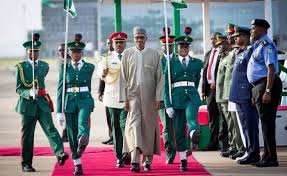 The Muhammadu Buhari and Tunde Idiagbon regime tried hard to reverse the ugly trend, by introducing War Against Indiscipline(WAI) this brought about sanity and it positively affected the psyche of all Nigerians, although under a dictatorship.
The Muhammadu Buhari and Tunde Idiagbon regime tried hard to reverse the ugly trend, by introducing War Against Indiscipline(WAI) this brought about sanity and it positively affected the psyche of all Nigerians, although under a dictatorship.However, the regime of Gen. Ibrahim Babangida soft pedaled and allowed the relaxation theory to take over, even though the War Against Indiscipline and Corruption(WAIC) was put in place, it turned out to be a game of deceit.
Despite all the mitigation measures, hunger and poverty defied all programmes-OFN, DFFRI, Better Life and so on.
This made Nigeria to look like an arid land where no plant could germinate.\
The regime of the late Gen. Sani Abacha recorded 65 per cent poverty index, while the fourth republic inherited 70 per cent poverty index according to a report by economic experts.
The truth of the matter is that Nigeria has not been able to produce a leader that is capable enough to transform the nation into a prosperous land.
Hunger could even be said to be the dividends of Democracy in Nigeria.
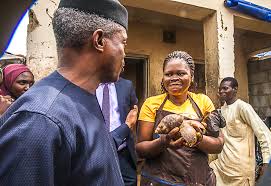 When one considers the ever depreciating purchasing power of our Naira and ever increasing pump price of petrol, upon which the activities of industries and the transportation system depends, then one would reach the conclusion that all is not well.
When one considers the ever depreciating purchasing power of our Naira and ever increasing pump price of petrol, upon which the activities of industries and the transportation system depends, then one would reach the conclusion that all is not well.The relocation of more than 800 industries to other nations from Nigeria, worsened the employment situation which none of the successive governments since 2007 have been able to address.
The recent balancing wheel of our economic equation, whereby government may assent to N30,000 new national minimum wage and at the same time increase in the Value Added Tax is in the works, would only serve to worsen the already bad situation.
This is so because the consequent effect would reflect on the already two digit inflation figure to be on the increase, while prices of commodities beginning from food stuff to other commodities would sky rocket beyond the reach of the already impoverished masses.
Economic experts have advised government to consider the downward review of the salaries and allowances of the ruling class, this should be effected.
For example, the Senate is the highest in rank with N14.2 million per month. This could be scaled down to N7 million.
The President and Vice President have been reported to receive N14 million and N12 million, respectively. This could also be cut to half.
If this preferred solution could be accepted, the cost of governance would be lower and manageable, while the size of government would require trimming, without necessarily affecting governance negatively.
Besides this, all political appointments including the ministerial ones would need to be monitored for effectiveness and accountability, for Mr. President to be able to take decisions on non performing Ministers.
For example electricity is essential to activate business activities from the industrial sector to the minute level, in order that we may be able to produce abundantly without recourse to importation and at low affordable costs to the people.
For poverty to be drastically reduced and to remove hunger from the tables of families in Nigeria occasioned by our over dependence on oil, attendant cases of fraud need to be effectively addressed.
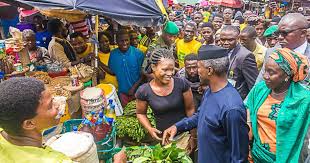 Furthermore, economic diversification and establishment of several industries by government and private individuals would reduce our over dependence on oil.
Furthermore, economic diversification and establishment of several industries by government and private individuals would reduce our over dependence on oil.An independent economy would ever solve the problem of hunger and diseases.
Nigeria is known all over the world to be the most fortunate fertile land that is full of resources, but for the mismanagement syndrome of the resources and kleptocracy in governance, poverty would continue to slap us on our faces.
Government needs to work on the psyche of Nigerians, on our attitude, while the culture of philanthropy and selfless community service, need to be entrenched to create an environment that would be conducive enough for good idea germination for the benefit of all.
-
Laboratory Services Are Crucial in Addressing Health Issues-Uganda Health Minister
- On 04/04/2019
The Minister of Health in Uganda, Dr. Ruth Aceng has emphasized the importance of laboratories in addressing health issues.
Dr. Aceng made this position known on Wednesday during the dissemination of the Ministry's Laboratorya policy at its headquarters in Kampala.
''Laboratory services play a critical role in diseases prevention and effective survveillance laboratory systems help detect early, thereby massive outbreaks and in the case of outbreaks , to facilitate effective management'', Dr. Aceng stated.

